Health
Euthanasia Prevention Coalition hopes to derail plan to offer euthanasia for people with mental illnesses

From LifeSiteNews
The Euthanasia Prevention Coalition is urging support for a campaign to reverse Canada’s decision allowing assisted suicide for those suffering with mental illness.
The Euthanasia Prevention Coalition needs your help to implement a successful campaign to reverse the decision to permit euthanasia for mental illness in Canada.
EPC has launched a petition to the justice minister and the justice critics demanding that the Canadian government reverse its decision to permit “MAiD” (Medical Assistance in Dying) for mental illness alone and demanding that Canadians with mental illness not be abandoned to death by euthanasia.
EPC has printed postcards (picture below) that can be ordered for free by calling: 1-877-439-3348 or emailing: [email protected].

EPC is also planning to release a video on euthanasia for mental illness soon.
Please consider making a donation towards the cost of this campaign here.
Background information
When the Canadian government expanded its euthanasia law (MAiD) in March 2021 (Bill C-7) it did so by removing the terminal illness requirement and permitting Canadians to be poisoned to death if they have an irremediable medical condition.
Bill C-7 also added the option of euthanasia for mental illness alone. Bill C-7 originally provided a two-year moratorium on euthanasia for mental illness to give them time to prepare for this expansion. In 2023 the government extended the moratorium for another year. Unless the government pauses its current plan, euthanasia for mental illness alone will become an option on March 17, 2024.
In February 2023, the Angus Reid Institute published a poll indicating that 31 percent of Canadians supported euthanasia for mental illness alone, with the highest support being in Quebec (36 percent) and the lowest support being in Saskatchewan (21 percent). In September 2023, the Angus Reid Institute conducted another poll which indicated that support for euthanasia for mental illness alone had dropped to 28 percent of Canadians.
Some real life stories
In August 2022, Global News reported the story of a Veterans Affairs employee who advocated euthanasia for a veteran living with PTSD. The article stated:
A Canadian Forces veteran seeking treatment for post-traumatic stress disorder and a traumatic brain injury was shocked when he was unexpectedly and casually offered medical assistance in dying by a Veterans Affairs Canada (VAC) employee, sources tell Global News.
Sources say a VAC service agent brought up medical assistance in dying, or MAID, unprompted in the conversation with the veteran. Global News is not identifying the veteran who was seeking treatment.
Canadians were shocked that a veteran who served the country and was seeking help for PTSD was offered (MAiD) euthanasia. The story was published around the same time as several other stories of people with disabilities who were approved for euthanasia based on poverty, homelessness, or being unable to obtain medical treatment.
The Tyee published in August 2023 the story of Kathrin Mentler (37) who lives with suicidal ideation. Mentler, who said that she has lived with depression, anxiety, and suicidal thoughts for many years, was offered euthanasia at the assessment centre at the Vancouver General Hospital when she was seeking help for suicidal ideation.
According to the article, Mentler went to the Vancouver General Hospital to receive help. The article states that she was told by the counsellor that the mental health system was “completely overwhelmed,” there were no available beds, and the earliest that she could talk with a psychiatrist was in about five months. The counsellor then asked Mentler if she had ever considered medically assisted suicide.
Canadians reacted strongly to the Mentler story as she was experiencing suicidal ideation and offered euthanasia while seeking a “safe place.” It must be noted that euthanasia for mental illness was technically illegal in June 2023 when it was offered as an option to Mentler.
An editorial published by the Globe and Mail on November 4, 2023, quoted Dr. K Sonu Gaind, chief of psychiatry at Sunnybrook Health Sciences Centre in Toronto, stating that there is “absolutely no consensus” as to what constitutes an irremediable medical condition when it comes to patients with mental illness. This comment is important because the law requires that a person to be approved for euthanasia, must have an irremediable medical condition.
There have been many articles in the media concerning people with disabilities who asked for or received euthanasia (MAiD) based on poverty, homelessness, or an inability to obtain medical treatment.
Similar to people with disabilities, people with mental health issues are more likely to live in poverty, to be homeless or to struggle to obtain the medical treatment that they need.
The battle to protect people with mental illness has not ended
On December 13 Justice Minister Arif Virani stated that the federal government may “pause its original plan” to permit euthanasia (MAiD) for mental illness.
Members of Parliament will have the opportunity to oppose euthanasia for mental illness when they return to Parliament after the Christmas break.
Members of Parliament need to reject euthanasia for mental illness.
Urge MPs not to abandon people with mental illness to death by MAiD.
Reprinted with permission from the Euthanasia Prevention Coalition.
Addictions
City of Toronto asks Trudeau gov’t to decriminalize hard drugs despite policy’s failure in BC
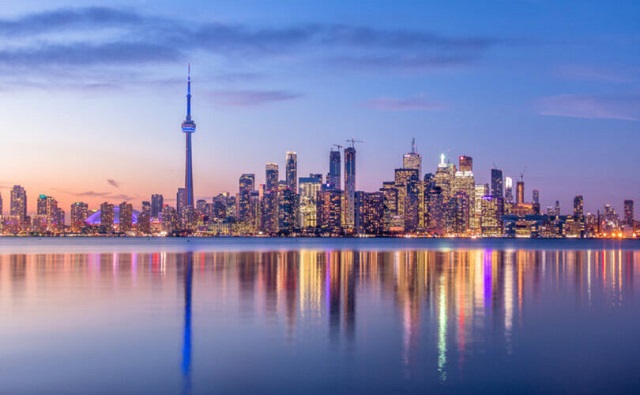
From LifeSiteNews
“Criminalizing the possession of drugs for personal use leads to discrimination and stigma, and contributes to people hiding their drug use from their physicians, friends, family, colleagues, and community”
The City of Toronto is asking Prime Minister Justin Trudeau’s government to decriminalize hard drugs.
In a March letter, Toronto city officials appealed to the Trudeau government to legalize all quantities of crack, cocaine, heroin, meth, and other hard drugs, despite warnings that it will bring increased chaos and violence to the city. Its reasoning is that people look askance at drug abuse and drug abusers, who then attempt to hide their habit.
“The evidence demonstrates that criminalizing the possession of drugs for personal use leads to discrimination and stigma, and contributes to people hiding their drug use from their physicians, friends, family, colleagues, and community,” the document claimed.
The letter, penned by Medical Officer of Health Dr. Eileen de Villa, City Manager Paul Johnson, and Chief of Police Myron Demkiw requested that the Trudeau government decriminalize hard drugs for young people as well as adults. The application places no limit on the quantity of drugs which would be legally obtained.
Toronto is already seeing a rise in crime since the election of Toronto mayor Olivia Chow. Canadians have pointed out that Toronto is dealing with several issues, without adding the decriminalization of hard drugs,
“Trudeau must reject Toronto’s application to allow public use of crack, cocaine, heroin, & other hard drugs,” Conservative Party leader Pierre Poilievre wrote on X, formerly known as Twitter.
“His dangerous policy cannot bring the same chaos, death & destruction to more Canadian cities,” he added.
Trudeau must reject Toronto's application to allow public use of crack, cocaine, heroin, & other hard drugs.
His dangerous policy cannot bring the same chaos, death & destruction to more Canadian cities. pic.twitter.com/hG5h9lsWPq
— Pierre Poilievre (@PierrePoilievre) May 1, 2024
Poilievre’s condemnation was echoed by Ontario Premier Doug Ford who promised, “I will fight this tooth and nail. This is the wrong way to go.”
Poilievre further explained that Canadians have already seen the dystopian effects of the decriminalization of hard drugs in British Columbia, which “has caused chaos in hospitals, playgrounds, parks, and public transport.”
READ: British Columbia should allow addicts to possess even more drugs, federal report suggests
Beginning in early 2023, Trudeau’s federal policy, in effect, decriminalized hard drugs on a trial-run basis in British Columbia.
Under the policy, the federal government began allowing people within the province to possess up to 2.5 grams of hard drugs without criminal penalty, but selling drugs remained a crime.
The province’s drug policy has been widely criticized, especially after it was found that the province broke three different drug-related overdose records in the first month the new law was in effect.
Last week, BC Premier David Eby finally admitted that the province’s ‘safe supply’ program was a failure and called on the Trudeau government to reverse the program. However, Trudeau has yet to respond to the province’s appeal for help.
“Safe supply“ is the term used to refer to government-prescribed drugs that are given to addicts under the assumption that a more controlled batch of narcotics reduces the risk of overdose. Critics of the policy argue that giving addicts drugs only enables their behavior, puts the public at risk, and disincentivizes recovery from addiction. Where “safe supply” has been implemented, it has not reduced the number of overdose deaths. It has sometimes even increased it.
The effects of decriminalizing hard drugs in parts of Canada have been exposed in Aaron Gunn’s recent documentary Canada is Dying, and in the British Telegraph journalist Steven Edginton’s mini-documentary, Canada’s Woke Nightmare: A Warning to the West.
Gunn says he documents the “general societal chaos and explosion of drug use in every major Canadian city.”
“Overdose deaths are up 1,000 percent in the last 10 years,” he said in his film, adding that “[e]very day in Vancouver four people are randomly attacked.”
Even Liberals have begun admitting that Trudeau’s drug program has not helped addicts but only added to their problems.
In April, Liberal MP Dr. Marcus Powlowski testified that violence from drug users has become a problem in Ottawa, especially in areas near the so-called “safe supply” centres which operate within blocks of Parliament Hill.
“A few months ago I was downtown in a bar here in Ottawa, not that I do that very often, but a couple of colleagues I met up with, one was assaulted as he was going to the bar, [and] another one was threatened,” said Powlowski.
“Within a month of that, I was returning down Wellington Street from downtown, the Rideau Centre, and my son who is 15 was coming after me,” he continued. “It was nighttime, and there was someone out in the middle of the street, yelling and screaming, accosting cars.”
RELATED: Liberal MP blasts Trudeau-backed ‘safe supply’ drug programs, linking them to ‘chaos’ in cities
Addictions
British Columbia to re-criminalize hard drug use in public after massive policy failure
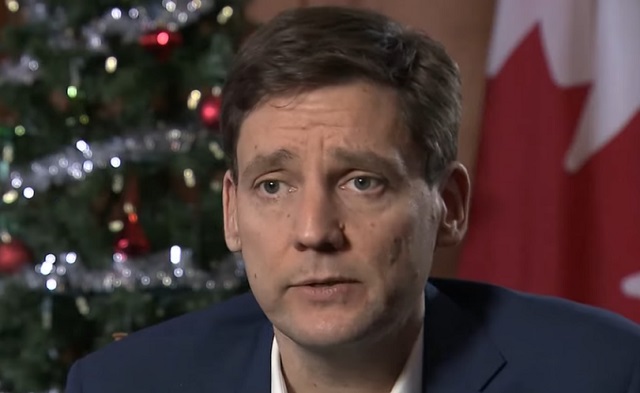
From LifeSiteNews
British Columbia premier David Eby announced that his province plans to re-criminalize hard drug use in public spaces after its decriminalization last year led to widespread social disorder.
British Columbia is asking the Trudeau government to roll back its drug decriminalization program after increased violence and continued overdoses.
On April 26, New Democratic Party (NDP) premier of British Columbia David Eby announced that he is working with Prime Minster Justin Trudeau’s federal government to re-criminalize drug use in public spaces, including inside hospitals, on transit, and in parks. British Columbia, under permission from the Trudeau government, had decriminalized such behavior in 2023.
“Keeping people safe is our highest priority,” Eby explained in a press release. “While we are caring and compassionate for those struggling with addiction, we do not accept street disorder that makes communities feel unsafe.”
“We’re taking action to make sure police have the tools they need to ensure safe and comfortable communities for everyone as we expand treatment options so people can stay alive and get better,” he continued.
Under the new regulations, police would be given the power to prevent drug use in all public places, including hospitals, restaurants, transit, parks and beaches.
However, drug use would remain legal at “a private residence or place where someone is legally sheltering, or at overdose prevention sites and drug checking locations.”
Eby’s concerns over drug use were echoed by Minister of Public Safety and Solicitor General Mike Farnworth who said, “Our communities are facing big challenges. People are dying from deadly street drugs, and we see the issues with public use and disorder on our streets.”
“As we continue to go after the gangs and organized criminals who are making and trafficking toxic drugs, we’re taking action now to make it illegal to use drugs in public spaces, and to expand access to treatment to help people who need it most,” he promised.
Beginning in early 2023, Trudeau’s federal policy, in effect, decriminalized hard drugs on a trial-run basis in British Columbia.
Under the policy, the federal government began allowing people within the province to possess up to 2.5 grams of hard drugs without criminal penalty, but selling drugs remained a crime.
While British Columbia has not yet indicated it plans to re-criminalize possession, its decision to clamp down on public drug use presents a major departure from its previous tactics of continually liberalizing its attitude toward narcotic use.
Since being implemented, the province’s drug policy has been widely criticized, especially after it was found that the province broke three different drug-related overdose records in the first month the new law was in effect.
The effects of decriminalizing hard drugs in various parts of Canada has been exposed in Aaron Gunn’s recent documentary, Canada is Dying, and in U.K. Telegraph journalist Steven Edginton’s mini-documentary, Canada’s Woke Nightmare: A Warning to the West.
Gunn says he documents the “general societal chaos and explosion of drug use in every major Canadian city.”
“Overdose deaths are up 1,000 percent in the last 10 years,” he said in his film, adding that “[e]very day in Vancouver four people are randomly attacked.”
-
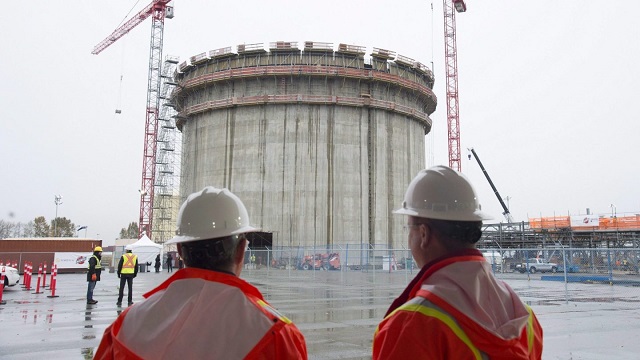
 Canadian Energy Centre2 days ago
Canadian Energy Centre2 days agoNorth America LNG project cost competitiveness
-

 Business2 days ago
Business2 days agoWEF panelist suggests COVID response accustomed people to the idea of CBDCs
-
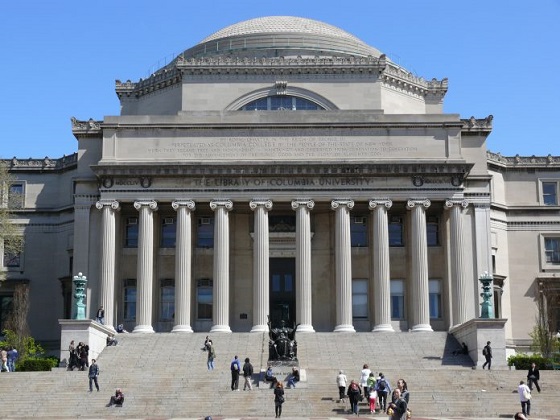
 conflict2 days ago
conflict2 days agoColumbia on Lockdown After pro-Palestinian Protesters Take Over Building, Hold Janitors Hostage
-

 Addictions1 day ago
Addictions1 day agoBritish Columbia to re-criminalize hard drug use in public after massive policy failure
-

 Addictions9 hours ago
Addictions9 hours agoCity of Toronto asks Trudeau gov’t to decriminalize hard drugs despite policy’s failure in BC
-
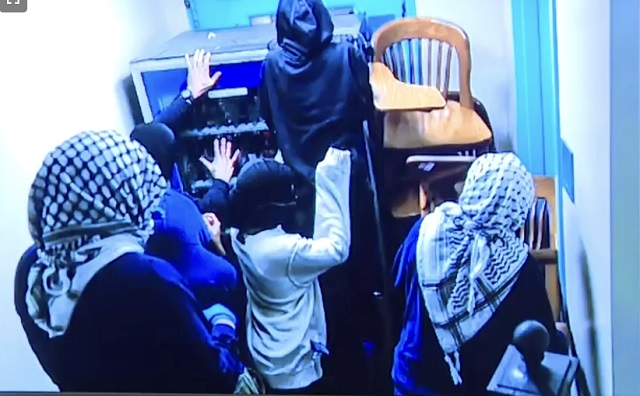
 International2 days ago
International2 days agoNYPD storms protest-occupied Columbia building, several arrested
-

 Environment1 day ago
Environment1 day agoJournalism Misrepresent Climate Science
-

 Business14 hours ago
Business14 hours agoWhen politicians gamble, taxpayers lose








